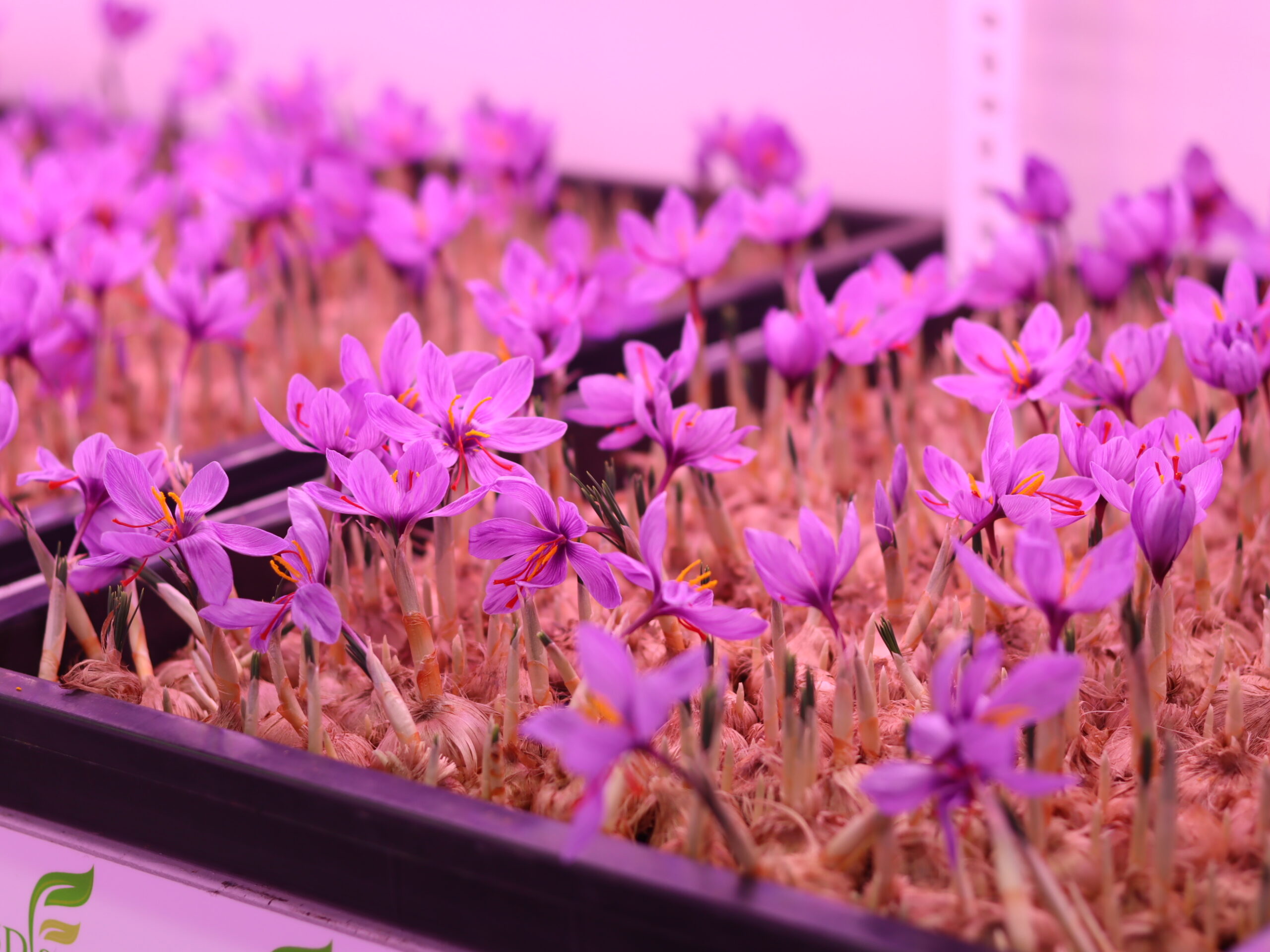
Revolutionizing Spice Production: The Future of Saffron Farming with Hydroponics
Introduction:
In the realm of spice production, saffron stands out as one of the most precious and sought-after commodities globally. Known for its distinctive flavor, vibrant color, and numerous health benefits, saffron has been revered for centuries. However, traditional saffron farming methods are labor-intensive, require vast amounts of land, and are often susceptible to environmental factors. Enter hydroponic saffron farming – a revolutionary approach that promises to transform the way saffron is cultivated, ensuring sustainability, efficiency, and consistent quality. In this blog, we delve into the future of saffron farming with hydroponics and its potential to revolutionize spice production.
The Basics of Saffron Hydroponic Farming:

Hydroponic saffron farming involves growing saffron plants without soil, using nutrient-rich water solutions. This method utilizes controlled environments such as greenhouses or vertical farming systems to provide optimal conditions for saffron cultivation. By eliminating soil, hydroponics minimizes the risk of soil-borne diseases and allows for precise control over nutrient levels, water pH, and environmental factors like temperature and humidity.
Advantages of Hydroponic Saffron Farming:

- Optimized Resource Utilization: Hydroponic systems require significantly less water compared to traditional soil-based farming, making them ideal for regions with water scarcity. Additionally, hydroponic setups can be designed to maximize space utilization, allowing for higher crop yields per square meter.
- Year-Round Cultivation: Unlike traditional saffron farming, which is limited to specific seasons, hydroponic systems enable year-round cultivation, ensuring a steady supply of saffron regardless of external weather conditions.
- Enhanced Quality and Consistency: By controlling environmental variables such as light intensity, nutrient levels, and irrigation, hydroponic saffron farming can yield saffron with consistent quality, flavor, and potency.
- Reduced Environmental Impact: Hydroponic farming minimizes the need for chemical pesticides and fertilizers, resulting in reduced soil erosion, water pollution, and greenhouse gas emissions. This environmentally friendly approach aligns with the growing demand for sustainable agricultural practices.
- Space-Efficient and Scalable: Hydroponic systems can be tailored to fit various spaces, from urban rooftops to large-scale commercial facilities. This scalability makes hydroponic saffron farming accessible to a wide range of growers, from hobbyists to commercial producers.
Challenges and Considerations:

While hydroponic saffron farming offers numerous benefits, it also presents unique challenges and considerations:
- Initial Investment: Setting up a hydroponic saffron farm requires upfront investment in infrastructure, including hydroponic systems, lighting, and climate control equipment. However, the long-term benefits in terms of efficiency and yield can outweigh the initial costs.
- Technical Expertise: Successful hydroponic farming requires knowledge of plant physiology, nutrient management, and system maintenance. Growers must invest time and resources in learning and mastering hydroponic techniques to optimize crop yields and quality.
- Market Demand and Pricing: Despite its premium status, saffron is a niche market, and growers must carefully assess market demand and pricing dynamics to ensure profitability.
- Regulatory Compliance: Growers must navigate regulatory requirements related to food safety, labeling, and agricultural practices when selling hydroponically grown saffron commercially.
Conclusion:
Hydroponic saffron farming represents a paradigm shift in spice production, offering a sustainable, efficient, and scalable alternative to traditional farming methods. By harnessing the power of controlled environments and advanced agricultural technologies, hydroponic growers can cultivate high-quality saffron year-round, meeting the demands of consumers while minimizing environmental impact. While challenges exist, the future of saffron farming with hydroponics is promising, paving the way for a more resilient and sustainable spice industry. As we embrace innovation and technological advancements, the golden threads of saffron will continue to weave their way into the tapestry of global cuisine and culture.


